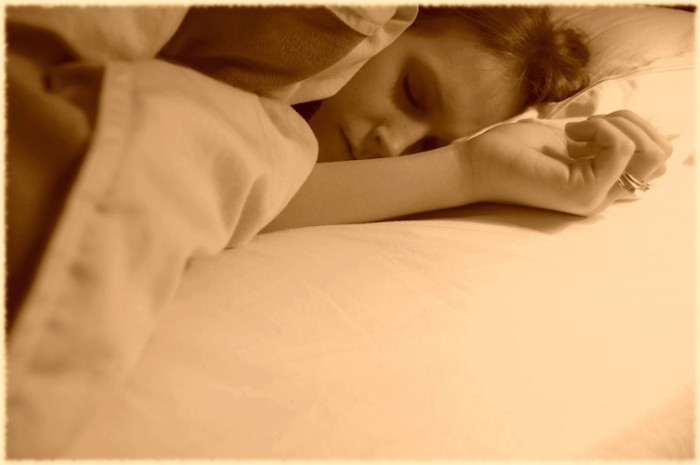In January, the word “resolution” appears all over the blogosphere.
While resolutions may work for some, I’ve found that the word “intention” can be a useful way to think about approaching your life in the New Year. Intentions encompass more than just the things you would like to do, but also the ways in which you would like to live your life.
Fulfilling your 2015 intentions may involve adapting your routine, mindset or practices to live more in line with your desires and worldview. This is very hard to do without being fully rested, and that is why I encourage you to consider how you might improve your sleep in 2015.
Many of us fall into patterns of irregular or insufficient sleep. Part of this has to do with the messages we receive in our culture. The “do more, sleep less” mentality is pervasive in American society, and can have negative short-term and long-term effects on our lives. In reality, our bodies and minds need sufficient rest in order to function in line with our intentions. When we don’t get enough sleep, our heath and mental functioning suffer, making it more difficult to fulfill our intentions.
The Mayo Clinic website cites a study done in 2010 indicating that lack of sleep negatively impacts our immune systems, making us more likely to fall ill (and stay ill longer) if we are exposed to certain bacteria or viruses. According to the Society for Neuroscience, insufficient sleep results in suboptimal brain function as well, negatively impacting our memory and ability to process information and complete tasks efficiently. In short, the less sleep we get, the less able we are to do the things we need or want to do.
Sleep problems differ from person to person, and can be complicated to solve. Deep breathing, muscle relaxation and guided imagery are three techniques that many of my clients have found useful for falling and staying asleep, and I practice them as well.
Deep breathing allows for more oxygen to enter the body, which can be both relaxing and restorative. Muscle relaxation involves bringing your awareness to various groups of muscles and relaxing them with breathwork, imagery and/or tensing and releasing the muscles until your entire body is relaxed. Guided imagery is a narrative that engages the imagination and senses and guides the mind toward a relaxed, focused state. When we relax into sleep using these techniques, we tend to sleep more soundly and awake feeling more refreshed and ready to accomplish what we want and need to do.
Getting a good night’s sleep on a regular basis is key to living in concert with our values, desires and potential. Consistent relaxation training can help us to achieve deep sleep, and leave us refreshed and capable of fulfilling our intentions in 2015.
I will leave you with a sample of relaxation training you can try tonight as you settle into your bed:
“The wave of relaxation continues on its journey, washing over your shoulders and down your back, now softening the muscles that surround each scapula. The wave is rippling down your lower back where stress and tension can accumulate. Envision this soothing wave washing all of the tension away and encouraging your back muscles to soften and rest peacefully…
And now the wave of relaxation moves into the front of your body—feel it flow over your chest. Take a slow, deep breath. Feel the air fill your lungs and your entire chest cavity. As you exhale, imagine the muscles on the sides of your ribs sinking toward the ground, like water flowing off the sides of your body. With each breath, your chest muscles become softer, more pliable, more relaxed. Feel your heart melt as your ribcage releases and your sternum falls gently… Take a few breaths on your own time, allowing waves of relaxation to continue to wash over your muscles, softening them, comforting them. Enjoy this calm, pleasant sensation as you relax more and more…”
~
This is an excerpt of a muscle relaxation exercise called “Waves of Relaxation” from my album “A Time for Sleep: Guided Relaxation Techniques for Peaceful Slumber.”
~
Sources:
Bollinger T, et al. Sleep, immunity, and circadian clocks: A mechanistic model. Gerontology. 2010;56:574.
Society For Neuroscience. “Scientists Find Brain Areas Affected By Lack Of Sleep.” ScienceDaily. ScienceDaily, 14 November 2003. <www.sciencedaily.com/releases/2003/11/031113065511.htm>.
~
~
Author: Beth Freschi
Editor: Travis May
Photo: Wikipedia







Read 2 comments and reply